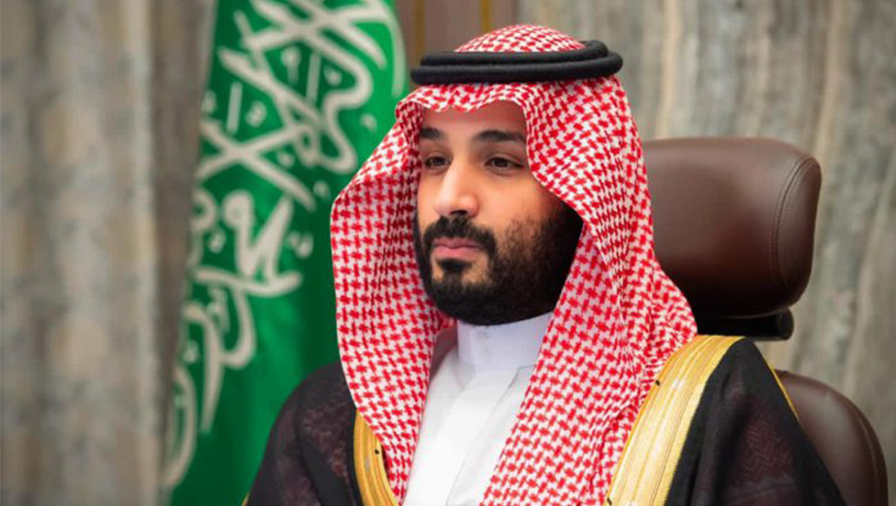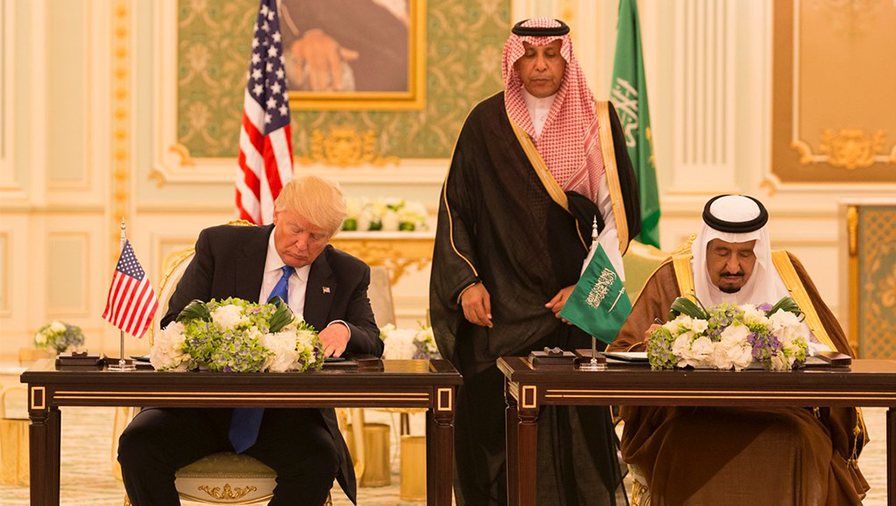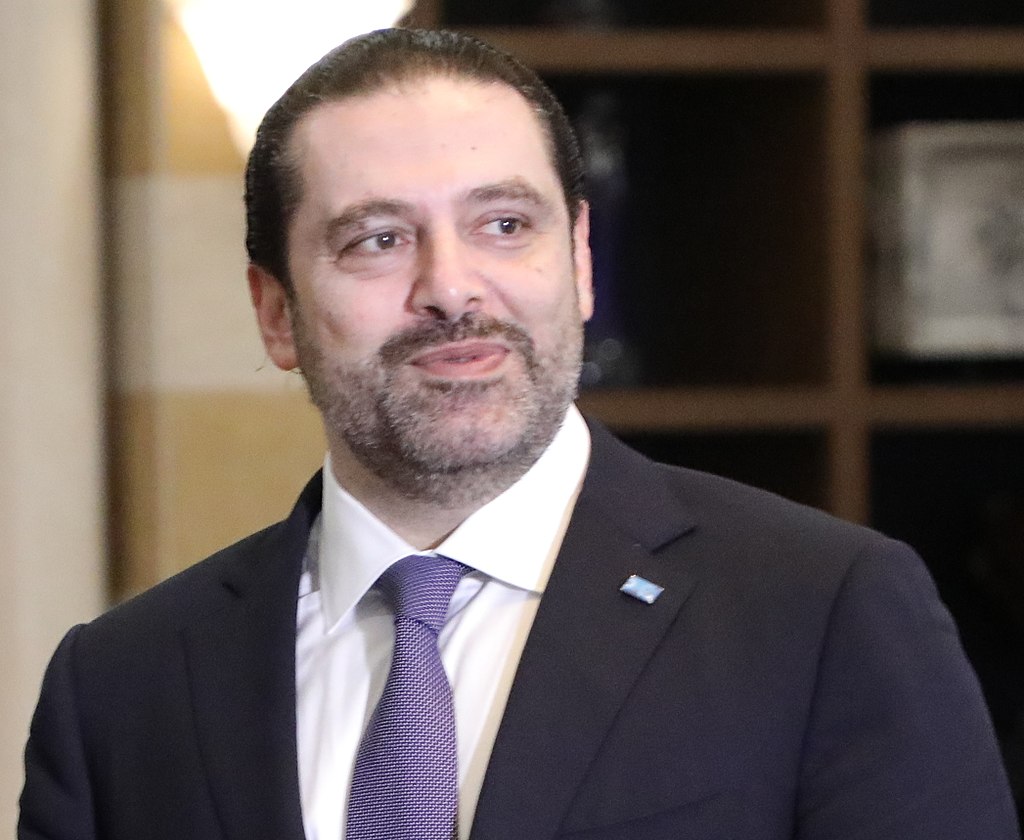No one messes with Saudi Arabia’s strongman
Book Review: Ambitious 35-year-old runs world’s richest oil state as he pleases.
Book Review: Ambitious 35-year-old runs world’s richest oil state as he pleases.
The speed with which Air New Zealand, backed by the government as the major shareholder, dropped an engine maintenance contract with the Saudi royal navy indicates the toxicity that surrounds the world’s richest oil state.
In commercial terms, the contract had an insignificant value, amounting to $3 million. But its abrupt termination could have deeper implications in future contractual arrangements and business dealings if the Saudis view it as a slight.
Saudi Arabia is by far New Zealand’s largest trading partner in the Middle East and, in military terms, is a long-standing ally. A free-trade agreement with the Gulf states still awaits ratification.
New Zealand also has a long-standing diplomatic relationship with Iran but not a military one. Trade with Iran is insignificant, partly due to international sanctions but mainly because of its hostility toward the US and the West generally through support of terrorist groups in Syria, Lebanon and Yemen.
After news of the Air New Zealand contract broke, the Green Party and Amnesty International were quick to denounce the Saudi navy as the enforcer of a blockade that prevents humanitarian aid from entering Yemen.
Situation in Yemen
This is simplifying if not distorting the situation in Yemen, where a civil war is raging between an internationally recognised government based in Aden and insurgent Houthi forces backed by Iran. The Houthis control half of the country, including its inland capital, Sana’a. The Saudi navy blockades the key port of Hodeida on the Red Sea.
Houthis belong to the Shia strain of Islam, while the Yemeni government and the Saudi-led coalition that includes the United Arab Emirates are largely Sunni Muslims.

The war is about to enter its seventh year since the Saudi intervention and has created what the BBC calls the world’s “worst humanitarian crisis”, with 75% of its population, some 22.2 million people, dependent on some form of aid.
That intervention was ordered in March 2015 by the Saudi defence minister, Mohammed bin Salman, then aged 29 and just six weeks after being appointed by his father, King Salman, who had just assumed the throne after the death of his half-brother, King Abdullah.
The decision to send in a strike force of F-15s was impulsive and sidelined the normally cautious Saudi military establishment. It was also a surprise to the US, the main supplier of military equipment and advice.
Houthi forces were advancing from their north-western base, and a rebel commander had goaded the Saudis that any intervention meant this wouldn’t stop an “expansion at Mecca but rather Riyadh [Saudi Arabia’s capital and seat of its absolute monarchy].”
Starting point
This is the starting point for a new book, Blood and Oil, by two Wall Street Journal reporters, Bradley Hope (co-author of Billion Dollar Whale) and Justin Scheck.
It is a biography of Mohammed bin Salman, known as MBS, the Crown Prince and promoter of widespread reforms that have radically changed life in Saudi Arabia.

His rise to world prominence is unparalleled in a country known for its strict form of Islam, its huge oil wealth, and the size of its royal family. The nation’s founder, Ibn Saud, ruled from 1932 until his death in 1953. By then he had produced three dozen or so sons from numerous wives and mistresses over nearly 50 years. They in turn have produced hundreds of other descendants.
The crown passed through several of Ibn Saud’s older sons until 2015, when Salman (born in 1935) jostled his way to the top from his position as governor of Riyadh. MBS is Salman’s first son by his third wife.
How MBS – younger than all of his many rival siblings, half-brothers, cousins, and even uncles – scrambled to the top as his father’s right-hand man is a tale of intrigue and brazen ambition.
He received a huge boost with the election of Donald Trump as US president in 2015.
Unlike his older cousin Mohammed bin Nayef (MBN), who was Crown Prince before being later ousted, MBS had cultivated the Trump camp immediately after it gained the Republican nomination. MBN, on the other hand, made the most of his American contacts during the Obama administration and was expecting a Hillary Clinton win.
MBS became particularly close to Jared Kushner, Trump’s son-in-law, who took a close interest in Middle East affairs. Kushner’s conditions for a good MBS relationship with Trump were simple: “Stop terrorism. Modernise. Stop extremism.” Kushner also added: Normalise relations with Israel and, if you want Trump to visit Saudi Arabia, “you have to start letting women drive and give them more rights.”
Trump visit
All that and more came to pass. In May 2017, Trump made his first international trip as president to Saudi Arabia, Israel and the Vatican. Arabian women were permitted to drive, cinemas were built, and tourists were welcomed for the first time. Kushner’s Middle East peace plan led to several Arab states, though not yet Saudi Arabia, establishing formal ties with Israel.

Soon after the Trump visit, in November 2017, MBS staged his most daring move yet. He rounded up most of the business and political elite, including the world’s most prominent Arab businessman, Prince Alwaleed, whose personal wealth is US$18 billion with major investments in Citibank, Apple and Twitter.
Hundreds were held captive in Riyadh’s luxurious Ritz-Carlton hotel and released only after they agreed to how the kingdom was being run. This meant handing back billions of dollars gained from corruption and backhanders – the normal way of doing business up to then.
MBS did not stop there in moving Saudi Arabia into the 21st century. He also cultivated some prominent figures in the corporate world, notably Wall Street bankers, Japan’s Masayoshi Son (Softbank), Hollywood agent Ari Emanuel, and National Enquirer publisher David Pecker.
International financiers began seeking appointments with MBS after he first announced in 2016 he wanted to float Aramco, the nationalised oil company, and raise up to US$2 trillion on the New York Stock Exchange.
Mainly, they were looking to tap Saudi cash for their own schemes. But MBS wanted their money for a sovereign fund to fulfil his ‘Vision 2030’, a plan that would invest billions in weaning his country off its fossil-fuel dependency and creating a Dubai-like metropolis called Neom.
The much-delayed initial public offering of Aramco finally occurred in December 2019 but was mainly subscribed by Middle East interests. It raised US$25.6b, well short of the initial expectations.
Nearly derailed
This was due to a couple of events that almost derailed MBS from his path to power.
The first was in December 2017: the kidnapping and forced resignation of Lebanese Prime Minister Saad Hariri, whose family had ties to Saudi Arabia. Hariri was eventually released and restored to his position but was forced to resign under public protests in December 2019.

The other event, in October 2018, was the killing and dismemberment of journalist Jamal Khashoggi, a onetime insider of the Saudi court and early supporter of King Salman.
However, Khashoggi’s columns in the Washington Post were highly critical of MBS and his methods. Khashoggi had become a clearing house for internal opposition to MBS as well as being friendly to Qatar and Turkey, two of the kingdom’s main enemies after Iran.
The grisly details of the crime in the Istanbul consulate were exploited by Turkey, and international outrage increased until it could no longer be denied. MBS earned another moniker, Mister Bone Saw.
The assassination coincided with a second gathering in Riyadh to promote the sovereign fund. The New York Times pulled its sponsorship and most of the invited dignitaries cancelled their attendance. One who didn’t was Lebanon’s Hariri, indicating MBS would probably ride out the storm and that the Saudi relationship was too valuable to end over a single murder.
The Khashoggi affair, now more than three years ago, would have resurfaced in many New Zealanders’ minds when the Air New Zealand contract came to light. Iranian-born Green MP Golriz Ghahraman was prominent in her criticism, and any commercial implications for New Zealand were cast aside when the prime minister said the deal failed the “sniff test”.
As the year of Covid-19 unravelled plans for Saudi Arabia to host the G20 summit, a brief oil price war to undermine Russia ended, and the war in Yemen dragged on, MBS took time out to recoup his plans during the pandemic lockdown.
Unlike his democratic equivalents, MBS faces few internal threats. His cousin Mohammed bin Nayef is in custody and embezzlement charges in the billions have just been laid in a Canadian court against MBN’s top aide, Saad al Jabri.
Mohammed bin Salman is still only 35 and isn’t even king yet. Whether he decides to make a stink over New Zealand’s cancellation of minor engineering contract remains unknown. But, rest assured, more will be heard about him in coming decades.
Blood and Oil: Mohammed bin Salman’s ruthless request for global power, by Bradley Hope and Justin Scheck.
Nevil Gibson is a former editor at large for NBR. He has contributed film and book reviews to various publications.
This is supplied content and not commissioned or paid for by NBR
Sign up to get the latest stories and insights delivered to your inbox – free, every day.